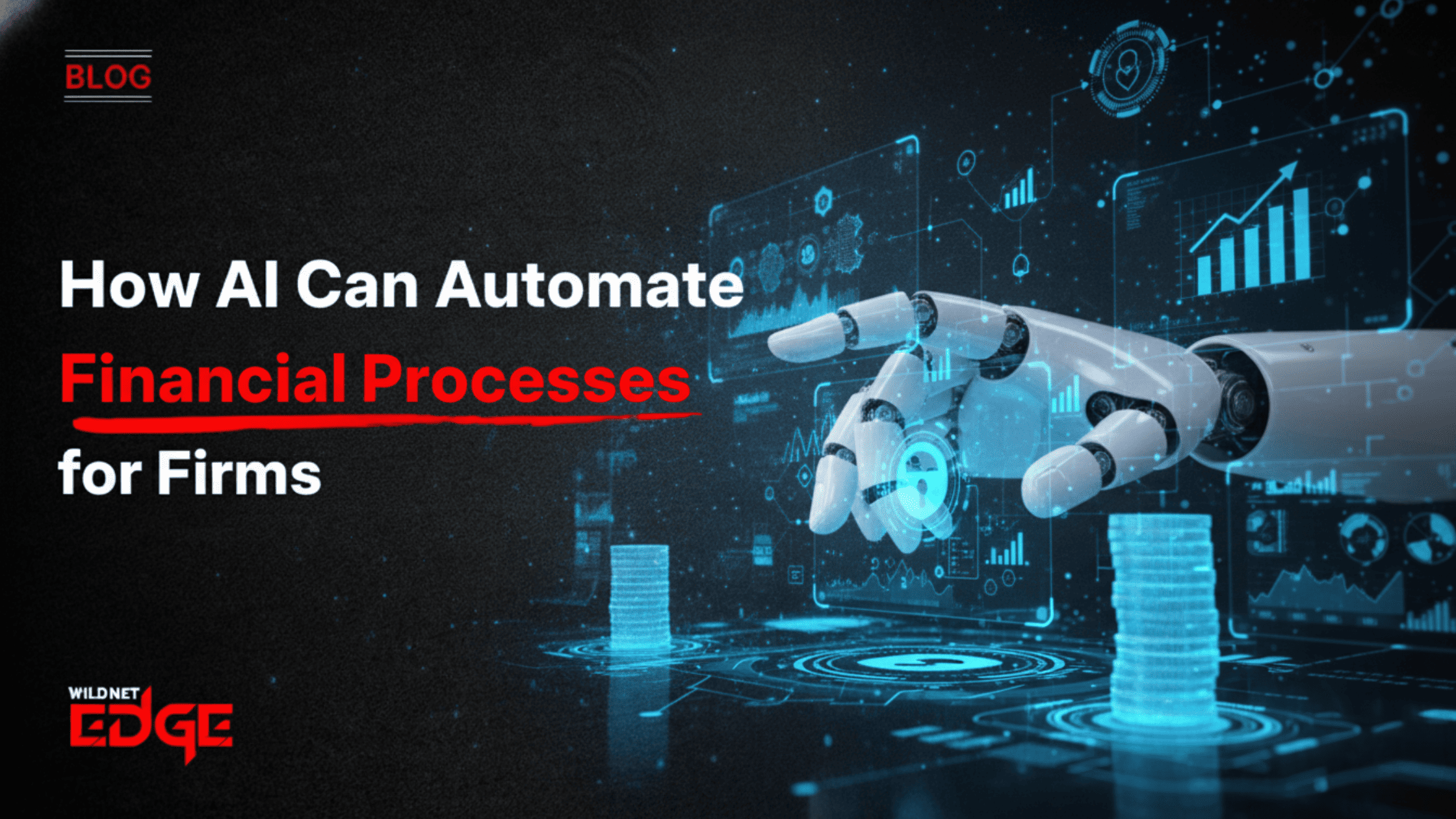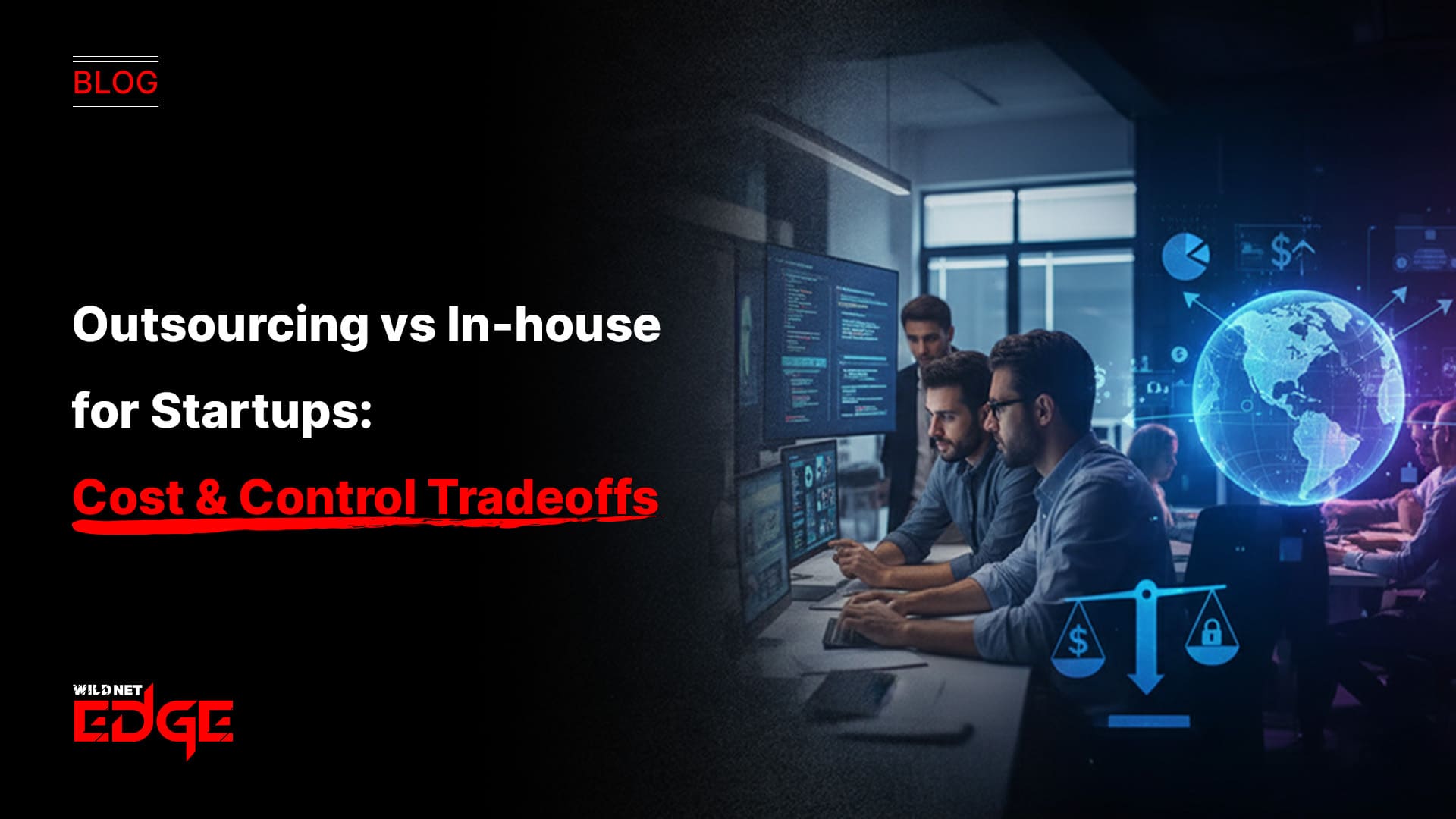TL;DR
This article explains how AI in financial automation is crucial for modern business efficiency, moving beyond basic tasks to handle complex financial processes. It highlights how AI-driven accounting tools can automate invoice processing, reconciliation, and expense management with high accuracy, reducing manual effort and errors. The guide explores the benefits of financial workflow automation, including improved cash flow management, enhanced fraud detection, and more accurate forecasting. It emphasizes that implementing these technologies frees up finance teams for strategic analysis rather than data entry. Adopting AI in finance is a key strategy for cutting costs, improving compliance, and gaining a competitive advantage for businesses.
Financial management is the bedrock of any successful business. However, traditional financial processes from accounts payable and receivable to expense reporting and reconciliation are often manual, time-consuming, and prone to human error. These inefficiencies drain resources and hinder strategic decision-making. In 2025, artificial intelligence offers a powerful solution. Implementing AI in financial automation is not just about incremental improvements but fundamentally transforming your finance function into a more efficient, accurate, and strategic operation.
What is AI in Financial Automation?
AI in financial automation refers to the use of artificial intelligence technologies, such as machine learning (ML), natural language processing (NLP), and robotic process automation (RPA), to streamline and automate various financial tasks and workflows. Unlike traditional automation that follows simple rules, AI can handle more complex, judgment-based tasks that previously required human intervention.
This includes understanding unstructured data (like invoices in various formats), identifying anomalies that might indicate fraud, predicting future cash flow, and providing intelligent insights for financial planning. It’s about making AI-driven accounting and financial workflow automation a reality, moving your finance team from data entry operators to strategic advisors.
The Core Benefits of Automating Financial Processes with AI
Integrating AI into your finance department delivers significant, measurable advantages.
Drastically Reduced Manual Effort and Errors
Many accounting tasks, such as data entry from invoices, expense report verification, and bank statement reconciliation, are repetitive and tedious. AI can automate these tasks with incredible speed and accuracy, often exceeding human capabilities. According to studies, automation can significantly reduce the time spent on manual financial processes. This frees up your finance professionals to focus on higher-value activities like analysis and strategy.
Improved Accuracy and Compliance
Manual data entry is inherently prone to errors (typos, misclassifications) which can lead to inaccurate financial reporting and compliance issues. AI systems perform tasks consistently and accurately every time, significantly reducing the risk of errors. Furthermore, AI can be trained to automatically check transactions against compliance rules (e.g., tax regulations, internal spending policies), enhancing your overall governance.
Enhanced Fraud Detection and Prevention
Financial fraud is a major risk for businesses. AI algorithms excel at analyzing vast amounts of transactional data in real-time to identify suspicious patterns and anomalies that might indicate fraudulent activity (e.g., duplicate invoices, unusual spending patterns). This proactive approach to AI for fraud detection allows you to catch and prevent fraud before significant losses occur.
Faster Processing and Improved Cash Flow
Automating processes like accounts payable and receivable accelerates the entire cycle. AI can instantly process incoming invoices, match them to purchase orders, and route them for approval, leading to faster payments. Similarly, it can automate invoice generation and follow-ups for accounts receivable, helping you get paid faster and improving your cash flow. This is a key benefit of effective financial workflow automation. An expert AI Automation Agency can design these optimized workflows.
Key Applications of AI-Driven Accounting
The deployment of AI in financial automation is varied and very beneficial, to say the least.
- Intelligent Invoice Processing: AI incorporates the use of Natural Language Processing (NLP) and optical character recognition (OCR) to automatically read invoices (even those in PDF format or scanned images), get the important data (vendor, amount, due date), check it against purchase orders, and enter it into the accounting system.
- Automated Expense Management: AI has the capability of receipt scanning of employees’ submissions, subsequent expense categorization of receipt, policy checking and exception flagging for review all at once.
- Smart Reconciliation: AI-based algorithms carry out matching of transactions between your bank statements, credit card statements and your general ledger which also helps in being able to spot discrepancies very quickly compared to manual reconciliation.
- Predictive Cash Flow Forecasting: AI models are able to produce more precise cash flow forecasts by looking at past data, sales pipelines and payment trends which in turn makes your liquidity management more effective.
Our AI Financial Automation in Action: Case Studies
Case Study 1: Automation of Accounts Payable in a Large Enterprise
- Problem: A huge company was manually handling tens of thousands of vendor invoices every month. The workflow was slow, costly, and error-ridden because of a lot of data entry. Moreover, it resulted in the company being charged late payment penalties very often.
- Our Approach: We introduced a solution for invoice processing that was powered by AI. The system took over the whole process by automatically receiving invoices via email, using OCR and NLP to extract the required data, matching that data with three other sources–purchase orders and goods receipts, and then sending the invoices electronically for approval. That was the step that enabled them to actually Automated Business Processes.
- Outcome: More than 85% of the company’s invoice processing was done through automation. Invoice processing time fell from several minutes to only a few seconds, the occurrence of data entry mistakes was almost nil, and they also made a big saving by getting the discounts for early payments.
Case Study 2: A Mid-Sized Company’s Expense Management
- Challenge: A finance team of a growing company was spending days each month in manually checking compliance with the company’s policy and reviewing hundreds of employee expense reports submitted via spreadsheets and paper receipts.
- Solution: We implemented an AI-powered expense management tool. Employees were able to submit their expenses by simply taking pictures of the receipts using their mobile phones. The AI did the data extraction, expense categorization, and company policy checking and flagged only the exceptions for manual review by the finance team. The employees were also assisted by an AI Virtual Assistant component through the submission process.
- Result: The finance team’s time for processing of expense reports was reduced by more than 90%. There was a marked increase in compliance with travel and expense policies, and employees were able to enjoy a quicker reimbursement cycle.
Our Technology Stack for Financial Automation
We leverage secure, reliable, and intelligent technologies.
- AI & Machine Learning: TensorFlow, PyTorch, Scikit-learn
- OCR & NLP: Google Cloud Vision AI, Azure Form Recognizer, spaCy, NLTK
- RPA Platforms: UiPath, Automation Anywhere, Blue Prism
- Cloud Platforms: AWS, Google Cloud, Microsoft Azure
- Integration: REST APIs, MuleSoft, Zapier
Conclusion
AI deployment in financial automation is a fundamental strategy for businesses that want to have the trio of benefits, i.e., efficiency, accuracy and control in the year 2026. Companies can unlock large-scale savings, reduce problem areas, and make their finance departments concentrate on strategic analysis not through operational but by repetitive tasks if they get rid of manual ones and accept the AI-associated ones to assist them in accounting and financial workflow automation.
Are you ready to develop a more intelligent and more efficient finance operation? At Wildnet Edge, the AI-first methodology guarantees the delivery of proficient Custom Software Solutions. We work with you on the processes to be automated, the exploration of insights and the changing of the finance function to become a very powerful engine for growth.
FAQs
Modern AI-based OCR and NLP tools increase accuracy rates significantly to 95-98% and even exceed when working with standard invoice formats that are properly trained. They do so in a way that is faster and more accurate than manual data entry.
Rarely, if at all, do companies laying off their employees during AI implementation. Firstly, by robotics, AI takes over the non-repetitive, low-value activities and thus making the finance department less crowded than the FP&A, strategic advising, and managing exceptions areas where they will be needed as their roles will be more valuable.
The integration of AI tools with existing legacy accounting or ERP systems is often the biggest challenge in the beginning. A clear integration strategy and building custom APIs are crucial for ensuring seamless data flow.
Security comes first. To achieve this it will be necessary to select AI vendors that are certified (for example SOC 2), to set up strict access controls, to apply encryption to data both in transit and at rest, and to keep up with the financial regulations.
AI can significantly enhance financial planning and analysis (FP&A). It can automate budget variance analysis, generate more accurate forecasts by analyzing complex variables, and identify key financial trends and risks much faster than manual methods.
Off-the-shelf tools are great for standard processes like expense management. However, for automating unique or highly complex workflows, or for integrating deeply with proprietary systems, a custom AI solution often provides a better fit and a higher long-term ROI.
A well-defined pilot project, like automating invoice processing for a specific vendor group, can often be implemented and show measurable benefits (e.g., reduced processing time) within 3 to 6 months.

Managing Director (MD) Nitin Agarwal is a veteran in custom software development. He is fascinated by how software can turn ideas into real-world solutions. With extensive experience designing scalable and efficient systems, he focuses on creating software that delivers tangible results. Nitin enjoys exploring emerging technologies, taking on challenging projects, and mentoring teams to bring ideas to life. He believes that good software is not just about code; it’s about understanding problems and creating value for users. For him, great software combines thoughtful design, clever engineering, and a clear understanding of the problems it’s meant to solve.
 sales@wildnetedge.com
sales@wildnetedge.com +1 (212) 901 8616
+1 (212) 901 8616 +1 (437) 225-7733
+1 (437) 225-7733















 ChatGPT Development & Enablement
ChatGPT Development & Enablement Hire AI & ChatGPT Experts
Hire AI & ChatGPT Experts ChatGPT Apps by Industry
ChatGPT Apps by Industry ChatGPT Blog
ChatGPT Blog ChatGPT Case study
ChatGPT Case study AI Development Services
AI Development Services Industry AI Solutions
Industry AI Solutions AI Consulting & Research
AI Consulting & Research Automation & Intelligence
Automation & Intelligence













